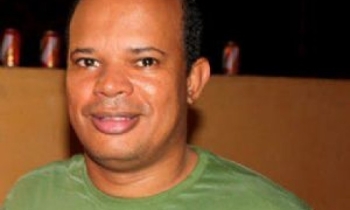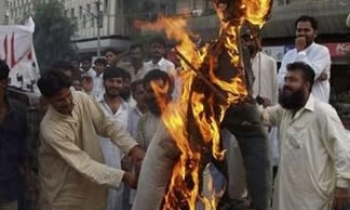The revelation that acclaimed journalist Bob Woodward sat on information in the CIA leak case for two years is difficult to defend even by "mainstream" journalists who have admired his work for more than three decades.
Woodward testified to special prosecutor Patrick Fitzgerald on Monday that a senior Bush administration official told him in mid-June 2003 about Valerie Plame's job at the CIA. She is the wife of former ambassador Joseph Wilson, an outspoken critic of the administration's handling of intelligence leading up to the war in Iraq.
Wilson contends that White House officials blew his wife's cover intentionally as retaliation for his criticism. It's a federal crime for a government official to deliberately reveal the identity of a covert agent.
The first published account of Plame's role at the CIA came from conservative syndicated columnist Robert Novak, who cited two anonymous senior White House officials.
While Fitzgerald was investigating whether a crime occurred, Woodward wasn't exactly keeping quiet for the last two years. He was on the talk-show circuit as usual, belittling the investigation and referring to Fitzgerald's actions as "disgraceful."
During this time, Woodward didn't even tell his bosses at the Washington Post that a White House source had tipped him off about Plame in 2003. For two years, he hid relevant information about an ongoing federal criminal probe, all the while trying to shape public opinion about the investigation's supposed lack of merit. Journalists should be allowed to protect the identity of their sources in limited circumstances, but not disclosing this information even to top officials at his newspaper raises serious doubts about Woodward's motives.
The Post reporter only disclosed his information after his source told the special prosecutor about their two-year-old conversation.
One of the problems here is that Woodward, much like former New York Times reporter Judith Miller, is his own boss. He belongs to the "star" system in journalism, consisting of an elite group of news gatherers who are newsmakers themselves, owing to their body of print and TV work in daily journalism and their books.
Woodward, of Watergate fame, unquestionably earned his status as one of the most famous journalists of his era; but even legendary journalists should play by the rules.
His testimony about his unidentified source seems at odds with the special prosecutor's claim that Vice President Cheney's former chief of staff, I. Lewis "Scooter" Libby Jr., was the first administration official to tell reporter's about Plame.
That probably does not have any bearing on the charge that Libby lied to the FBI and a grand jury about conversations with reporters. But the belated testimony by Woodward may prolong the leak investigation. And it's likely to confuse the issue at the heart of the probe, centering on some of those old-fashioned building blocks of journalism: who told what to whom, and when.









